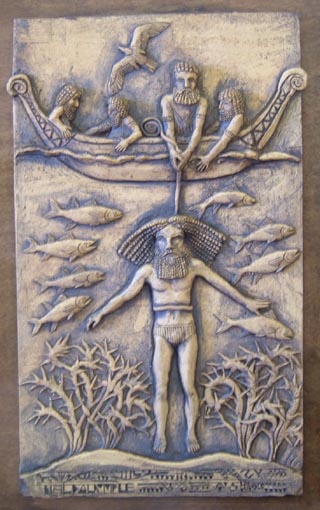Mortality depicts a beginning and an ending. A journey in between, which often times entail a transformation or a change over the course of point A to point B. Those two points however were given a stage that a simple location in time would not suffice. A stage that puts into perspective the development of characters beyond just the physical. This perspective holds true in “The Epic of Gilgamesh”.
A river begins from the steps of heaven to the overwhelming denial of the sea. Rivers were often described in the face of death a journey where one would flow until no light can be seen. Another perspective of the rivers are shown in a ceaseless motion. As an individual the disturbance you could cause in the stream of life is but a simple pebble barely making a mark. Utanapishtim tries to convince Gilgamesh that even with immortality your life could still be dead without any appreciation of who you were or where you came from. Here laid a man of perfection, two third’s divine but yet mortal only to seek life, an endless second chance. Was the search for immortality for himself? Or Enkidu? If Gilgamesh consumed the immortality herb, would he truly obtain what he wished for?

The transformation of who you become when you lose a part of yourself in any shape or form is a journey where life begins even if death was not involved. The whole role of Enkidu was not to rival but fill and show Gilgamesh with emotions that he lacked prior to meeting Enkidu. The emotions Gilgamesh felt after the death of Enkidu were guilt, sympathy, love and fear. Which begged the question, would he have preferred to live the life before or after Enkidu’s death? If you could, would you turn off your humanity?